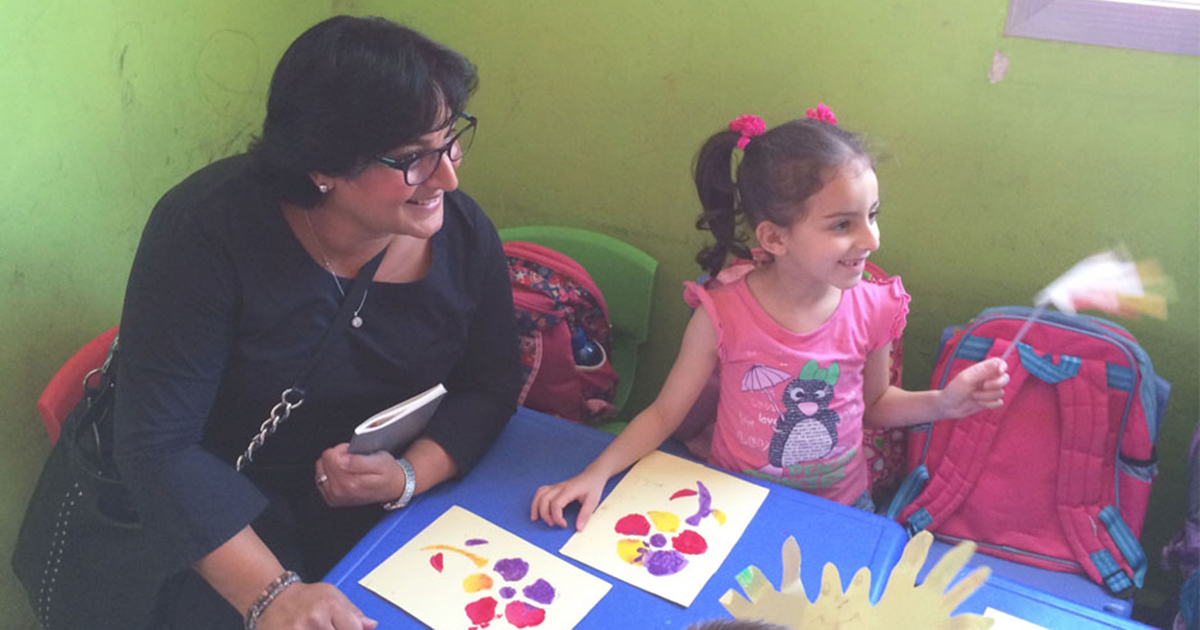Corporate Social Responsibility from the Bottom Up

How can companies empower citizens of the world’s war-torn economies?
For Shainoor Khoja, the answer includes bringing those citizens into the organization’s business model. Believing a company is only as strong as the community it serves, Khoja has spent more than 10 years engaging with and investing in the development of “bottom of the pyramid” consumers in Middle Eastern markets.
As managing director of Roshan Community at Roshan, Afghanistan’s top mobile operator, Khoja established an award-winning corporate social responsibility department with projects including the development of a telemedicine solution to address shortcomings in the country’s health care system.
Now, as CEO of Better Business Enterprises, Khoja spends her time on the ground in difficult regions, providing insight into how companies’ resources and investments can have the greatest impact.
Her work has brought her around the world, including Syria, Kenya, and Afghanistan, and has earned her the Lewis Institute Community Changemaker Award from Babson College, where she serves as a Senior Fellow in Social Innovation.
What inspired you to found Better Business Enterprises?
“My work with Roshan, an Aga Khan Fund for Economic Development Company. Roshan is Afghanistan’s largest telecommunications company, and its model is one of entrepreneurship; it set up seven flagship stores, and brought on Afghan entrepreneurs as franchisees. They, then, built the capacity of their community.
“The business itself was instrumental in being impactful, but the corporate social responsibility piece used the technology to increase the company’s impact. Telemedicine was an investment that started in 2006, become fully operational in 2007, and was self-sustainable after three years. More recently, it has become profitable, and the numbers are staggering—15,000 cases completed, so many lives saved. It’s a deepening of the concept of shared value.
“This made the light go off in my head. I wondered: If we can do this in Afghanistan and Africa, why can’t we do this in the UK? Or, in the United States? Hence, Better Business Enterprises was born. It gives me a vehicle through which I can educate, consult, speak, and invest in a variety of programs with a variety of partners.”
Tell us about your work in Syria.
“We worked in Syria at the height of the conflict, just 25 kilometers away from where ISIS had infiltrated. We were situated on this island of stability where multiple ethnic groups had taken sanctuary, but war tactics being implemented that cut our power and prevented food and water from reaching the area. It was a difficult time; in that environment, trying to build a sense of hope was tough.
“But, being on the ground enabled us to help. We looked at the challenges, identified what resources and skill sets were available, and began to create. We set up early learning centers for children to go to school. We set up small-scale businesses for women. We looked at greenhouse farming and determined which crops would require little water to grow. We made some mistakes, but were still successful.”
How do you determine what projects to take on next?
“It starts by identifying a problem. For me, especially in the regions I’ve worked, the critical issues are youth, poverty, and lack of opportunity. Once I understand the problem and the scale, the next step is identifying critical barriers that would need to be overcome. You have to look at all factors.
“I’m currently researching an idea that involves a way to offer small-scale, deferred-payment loans to Islamic women and youth. Currently in these regions, it’s easier to get a large sum of money on loan than it is to get $5,000 to go to university. We’re looking at ways to change this, and ultimately give women and youth more of a chance. It’s all in the conceptualization and research stage right now. It will take time to get the right knowledge under our belts so we can design the right solution. But, if we get it right, the results could be very interesting.”
How do you measure the impact of your projects?
“Initially, it was a numbers game. And, numbers are important. You need them. It’s meaningful to say life expectancy has grown by 10 years, infant mortality has decreased by 20 percent. But, the qualitative impact has been just as meaningful. Children are growing up healthier and performing better in school. Women who were trained at capacity businesses are now running the businesses themselves, and all of their daughters are going to school. We couldn’t say that before.”
What do you see as the future of corporate social responsibility?
“Corporate social responsibility, the concept of shared value, has had its time. Brick and mortar models are being disrupted by nonasset-based concepts—Uber, AirBnB. People will be putting their money into those types of models in the future rather than following traditional methods of giving.
“Also, thus far, this type of work has been an add-on for businesses. But, in the future, this type of role will be a c-suite position. And, that’s a very good thing.”
Posted in Entrepreneurial Leadership





